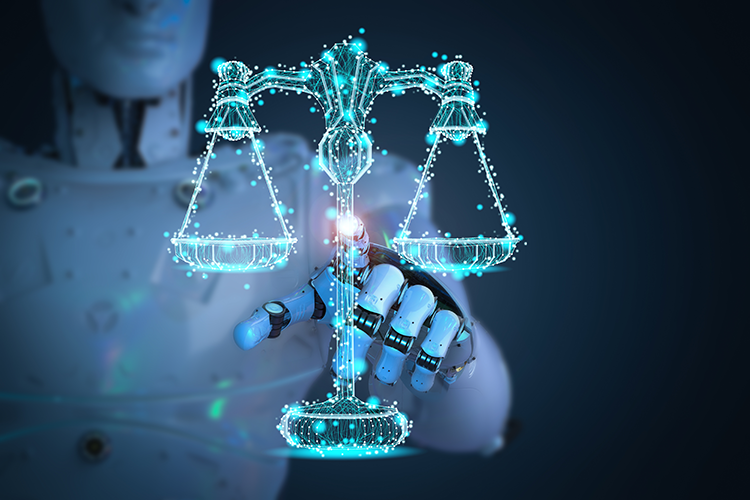'The Real Game-Changer': Dentons is latest major firm to launch GPT-powered chatbot

“The ability to upload and analyze client matter documents at speed and in a secure manner is the real game-changer,” said Dentons' U.K., Ireland and Middle East CEO Paul Jarvis. Image from Shutterstock.
Dentons has become the latest major law firm to utilize generative artificial intelligence, announcing that it will roll out a propriety GPT-based chatbot to lawyers to use on client work.
The global firm said in an Aug. 1 news release its new technology, named fleetAI, includes a chatbot to assist lawyers with legal research, help them create legal documents and hone their arguments. According to the firm, users will be able to upload multiple documents, so “key data such as clauses and obligations can be extracted, analyzed and queried against.”
“The ability to upload and analyze client matter documents at speed and in a secure manner is the real game-changer,” said U.K., Ireland and Middle East CEO Paul Jarvis in prepared remarks. “The use cases for fleetAI have been identified and tested with clients during the development phase, and we are confident this is going to fundamentally transform the way we deliver services to them.”
The technology is based on GPT-4, according to Dentons, the latest version of research company OpenAI’s large language model. Following the launch, the firm will beta test the software for six weeks.
Dentons follows other major firms using GPT-powered bots. International firm Allen & Overy announced in February that it would use the legal-focused generative AI platform Harvey for its work. Other firms, including DLA Piper, are using Casetext’s generative AI legal assistant, CoCounsel, which Thomson Reuters agreed to acquire for $650 million in June.
Other firms are taking a wait-and-see approach. In April, Thomson Reuters released the findings of a survey of midsize to large firms’ attitudes toward the burgeoning tech and found that a majority are “taking a cautious, yet hands-on approach.” Of the 443 respondents surveyed, 60% said they had no “current plans” to use generative AI, 3% said they are using it, and 2% are “actively planning for its use.”
Dentons said fleetAI’s name is a nod toward “the fleet-footed benefits the tool will bring to the firm’s client service delivery” and its London location in Fleet Place.
It plans to roll out the software later this month and in early September to 1,500 staff in its United Kingdom, Ireland and Middle East offices, says Joe Cohen, who is head of innovation for those regions, and then globally later this year.
The firm will train staff on the risks inherent in the technology, including inaccurate and biased responses. Even though client matter documents can be uploaded to the platform, Dentons has worked with Microsoft, which is one of OpenAI’s owners, to ensure that data uploaded into fleetAI is not used to train the tech, no one outside Dentons can access it, and it is erased after 30 days, according to the news release.
To insulate the firm against some of the risks, Cohen says the chatbot’s homepage warns users to independently verify and validate content the platform produces.
“This is a research tool, and that’s how we’re trying to get people to see it,” Cohen says. “This is something to ask to get some inspiration about a particular topic and help you get something down on paper for you to change.”
Dentons is developing fleetAI, so that it can automatically extract data and analyze “clients’ employment tribunal claims to predict future outcomes,” the firm said in the news release. Other planned features include a knowledge and business services bot for the firm’s internal policies.
Following news of the launch, Dentons said Aug. 8 it had parted ways with the Beijing Dacheng Law Offices. Headquartered in Beijing, Dacheng merged with Dentons in 2015. The firm cited the Chinese government’s new tightened regulations on cybersecurity and data protection as the reason behind the split and said Dacheng would now operate separately and independently from Dentons, according to a draft letter to clients published by Law360.
The U.S. government has warned that the new national security restrictions under the country’s anti-espionage laws could leave U.S. companies vulnerable to penalties, according to Reuters.
Bloomberg reports that the new regulations give China the power to shut down companies and impose fines and suspensions.
See also:
ABAJournal.com: “Law firms moving quickly on AI weigh benefits with risks and unknowns”
Write a letter to the editor, share a story tip or update, or report an error.


